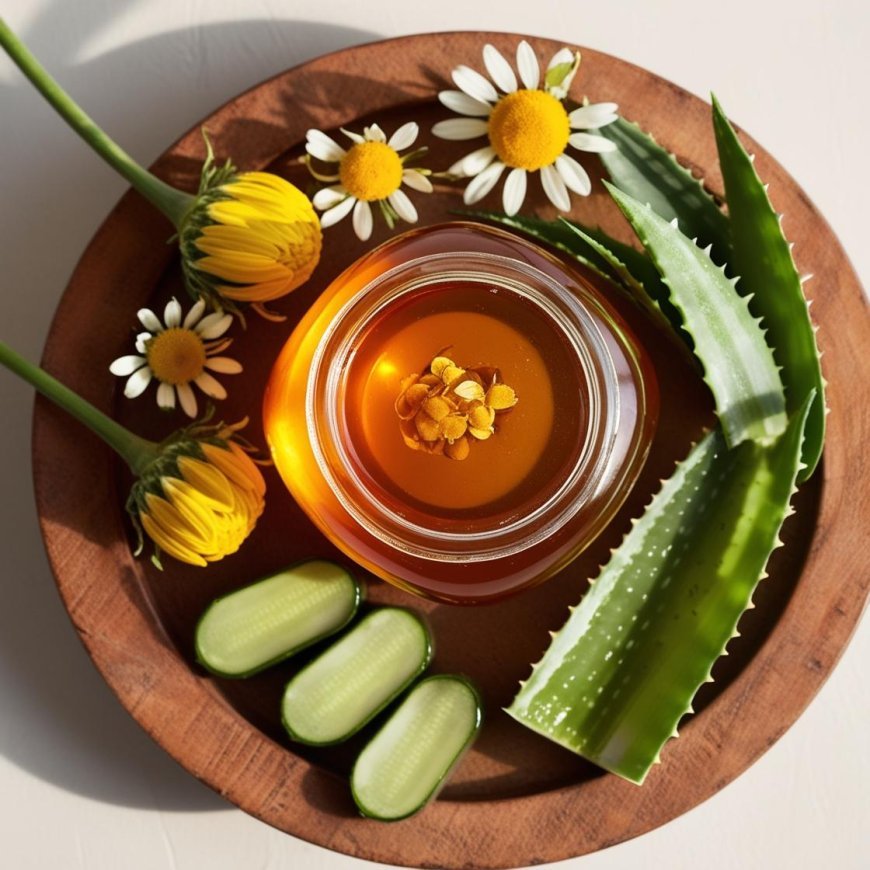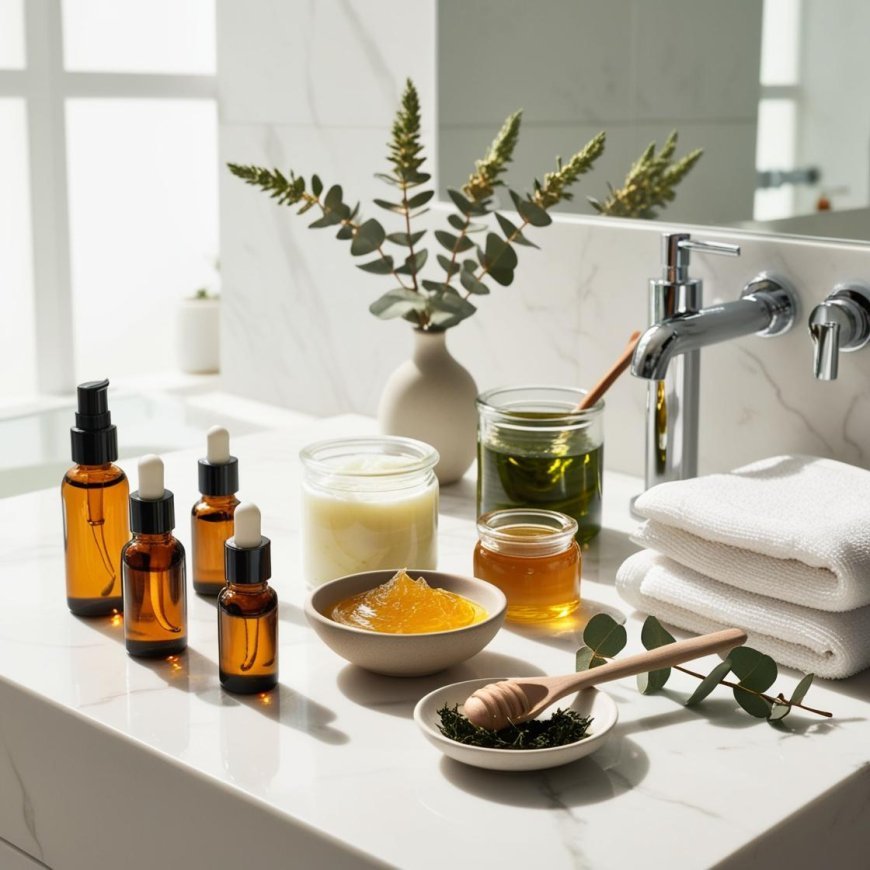Natural Ingredients in Skincare – What to Look For and What to Avoid
Natural skincare is growing in popularity, but knowing which ingredients are beneficial and which to avoid is essential. This blog delves into the best natural skincare ingredients like aloe vera, honey, and green tea for nourishing benefits, and warns against potentially harmful elements such as essential oils that may irritate sensitive skin. Discover how to choose safe, effective natural ingredients for a healthier skincare routine.

With a growing interest in clean beauty and ecological goods, individuals are seeking natural skincare ingredients. However, not all "naturals" are suitable for all skin types. Some of them work like magic, while others cause discomfort or other problems, and the sensitive one can be extremely dramatic. This book will walk you through the world of natural skincare components, teaching you what to embrace and what to use with caution.
The Power of Natural Ingredients in Skincare
That's why natural ingredients are so popular: they include a high concentration of antioxidants, vitamins, and other elements that nourish and protect the skin. Dryness, irritation, and obvious symptoms of aging can all be addressed with the right components. However, with so much variation available, it is critical to understand which natural substances are genuinely beneficial and which may not be suitable for all types of skin.
Ingredients to Look For

Here are the top natural components recommended by dermatologists and skincare professionals.
Known for its calming and moisturizing characteristics, ideal for sensitive or irritated skin. It lowers redness and inflammation, making it ideal for treating sunburns and other minor skin irritations.
2. Honey
A natural humectant that preserves moisture in the skin. Honey is also antimicrobial, so it can help acne-prone skin. For the greatest results, use either raw or Manuka.
3. Green Tea
Green tea contains antioxidants that protect the skin from environmental stressors and prevent inflammation. This is suitable for aged or sensitive skin.
4. Jojoba Oil
This moisturizer mimics natural skin oils and does not clog pores. It is suitable for every skin type, including oily and acne-prone skin.
5. Chamomile
It contains a lot of calming and anti-inflammatory effects, making it ideal for sensitive skin. The oils will soothe redness, minimize irritation, and level out your complexion.
6. Vitamin C
Natural sources of oranges and berries contain Vitamin C, which can lighten skin tone, eliminate dark spots, and combat the effects of aging. Make sure it is steady so that it can continue to provide its effect.
Ingredients: Use with Caution.
Some natural substances may be too harsh or reactive for some skin types, but they can still be effective when used in modest quantities or in specialized formulations.
1. Essential Oils
• Lavender, tea tree, and eucalyptus essential oils have healing effects but can be abrasive on sensitive skin; test them on a patch first and apply diluted.
2. Lemon Juice
• Although high in Vitamin C, lemon juice's pH can alter skin's natural equilibrium, leading to irritation, dryness, and increased sensitivity to sunlight.
3. Apple cider vinegar
4. Cinnamon
• Strong antibacterial properties make cinnamon an effective acne treatment, but sensitive skin may experience irritation, redness, or allergic reactions. A small amount can be used in homemade masks, however patch testing is recommended beforehand.
5) Baking soda
•Baking soda, while often recommended as a natural exfoliator, is not suitable for the skin since it is excessively alkaline and damages the skin's barrier, causing it to become dry and irritated more quickly.
All natural, safe, and effective ingredients should be formulated in balanced concentrations and tested for safety. Before using a new product containing essential oils or high doses of natural extracts, conduct a patch test. It is recommended that you consult your dermatologist before using a new product if you have sensitive skin or if you have skin troubles.
Natural skincare can be a great powerhouse when you choose the proper components and utilize them safely. Whether you want hydrated, bright skin or something to help with acne or aging, you'll know what to look for in natural components to build a mild and effective skincare regimen.
______________________________________
Conclusion
However, while natural ingredients can make a lot of promises, not everything that is "natural" is safe for all skin types. The goal is to choose your items carefully and avoid components that are likely to hurt you. You can then fully enjoy the benefits of nature without jeopardizing the health of your skin. Take aloe vera, honey, and green tea; proceed with caution when dealing with strong components such as essential oils or lemon juice.
With informed choices, you may achieve beautiful, healthy skin!
What's Your Reaction?







































































